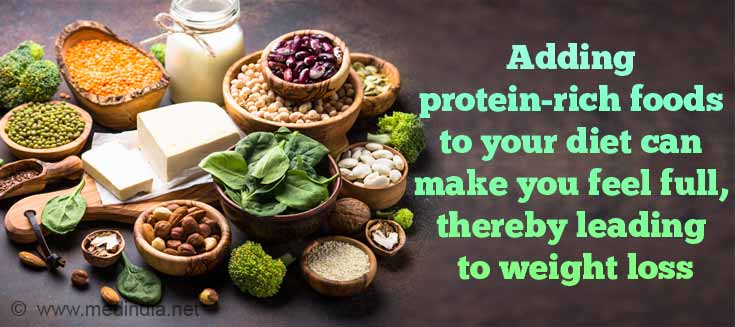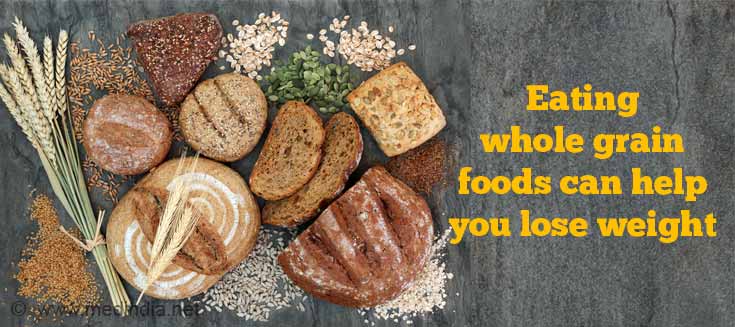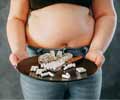Weight Loss Foods
Fad diets not working? If you are wondering why your weight loss diets are not working, maybe it’s because you are not including the right foods in your diet. Healthy weight loss is typically 1-2 pounds (0.4-0.9 kg) per week. It may appear gradual, but it is more sustainable and leads to long-term success. Slow, consistent progress is more sustainable and healthy in the long run.
Customize your weight loss diet from the following choices.
Protein Intake
Protein is the most important macro-nutrient in the diet that helps induce and prolong satiety levels leading to increased weight loss and helps maintain a lean body mass.
Protein foods such as lean meat, fish, beans, eggs and low-fat dairy products, tofu, and nuts promote muscle growth and require more energy to digest thus helping to reduce blood fats. For example, a study published in the Nutrition Journal concluded that ‘A realistic high protein weight-reducing diet is associated with greater fat loss and lower blood pressure when compared with a high carbohydrate, high-fiber diet in high risk overweight and obese women’.

Since some studies, including the (EPCL)-NL study, have shown that consumption of a high amount of protein from animal sources increases the risk of diabetes. However, the jury is still out regarding this, so eat whichever you prefer or a combination of both.
Although the Recommended Dietary Allowances (RDA) for women is 46g of protein per day and for men, it is 56g, if you wish to lose weight through high-protein diet, you need to consume about 120g of protein per day. However, don’t choose a high protein diet if you have kidney or liver disease. High protein diet invariably involves consuming fewer carbs. Make sure that you include high-quality carbs in your high protein diet.
Protein takes longer to digest than carbohydrates, and it helps you feel filled for longer periods of time and curb cravings. Naturally, this may result in ingesting less calories overall. Protein causes your body to expend more calories while processing since it has a larger thermic effect than fats and carbohydrates. In order to lose weight, it is usually advised to consume 0.7 to 1 gram of protein per pound of body weight (1.6 - 2.2 grams per kilogram).
High-fiber foods
Cooked lentils, peas, black beans, artichoke, broccoli, turnip greens, raspberries, and pear with skin are some foods that are very high in fiber content. You may have noticed that these foods increase your fluid intake. This is because the soluble fiber attracts water and turns to gel during digestion thus slowing down digestion. This, in turn keeps you feeling full for longer.
Soluble fiber such as beta-glucan and pectin helps reduce LDL cholesterol to certain extent, according to a study published in the American Journal of Clinical Nutrition.
Studies also suggest that high-fiber diets improve insulin sensitivity and other cardiovascular risk factors in individuals with insulin resistance syndrome and diabetes in comparison with diets high in refined carbohydrates.
Mayo Clinic recommends at least 21g to 25g of fiber a day for women, while men should aim for 30g to 38g a day.
Whole grain foods
Switching to brown rice, basmati rice, whole grain breads, multigrain breads, whole wheat, barley, buckwheat, sorghum, oat bran, and oatmeal can help you lose weight.

Researchers at Pennsylvania State University studied 50 obese people with metabolic syndrome where they were given hypocaloric (reduced by 500 kcal per day) diet that included either whole grain foods or refined grain foods for 12 weeks. The results showed that although both groups lost weight, the whole grain group not only lost more abdominal fat but their C-reactive protein (a marker for inflammation) dropped by 38 percent.
Studies have shown that long-term consumption of whole grain products that are low in the glycemic index may increase satiety and reduce energy consumption and, thus, contribute to weight loss.
Similarly, the inherent high fiber content of whole grain foods may help prevent weight gain by increasing appetite control through delaying carbohydrate absorption. One such study from the University of California revealed that 48g to 80g of whole grain per day (3-5 serving per day) led to less weight gain.
Whole grains are rich in vitamins, minerals, phytochemicals and fiber. Dietary fiber increases short-chain fatty acid synthesis, thus reducing cholesterol production by the body.
The American Heart Association recommends that at least half of grain intake should come from whole grains.
Fruits and vegetables
Fruits and vegetables are low in calories and high in dietary fiber, vitamins and minerals. A Pennsylvania State University study indicated that combining increased fruit and vegetable intakes with decreased fat intake is an effective strategy for managing body weight while controlling hunger. researchers says, ‘A dietary strategy that helps individuals control hunger by eating satisfying amounts of food could improve adherence and increase weight loss. One such approach is to encourage individuals to decrease the energy density of the diet by consuming low-energy-density foods’.
Fruits and vegetables are low energy density foods. Choose bright colored fruits and vegetables more often since they are rich in antioxidants.
A Brazilian study published in the journal Nutrition Research found that an increase of 100g per day of vegetables and fruits represented a body weight loss of 500g and 300g after 6 months, respectively. However, most experts feel that fruits and vegetables are more effective as after weight loss maintenance foods rather than as a weight loss strategy.
Just focusing on foods for weight loss may not be effective if you are not physically active. Aim for at least 150 minutes of moderate physical activity or exercise per week and increase it gradually. In order to promote muscular growth and general fitness, give rest and recovery a top priority.
If you still find yourself gaining weight, consult your doctor; you might be suffering from some ailment.
Eat healthy, consume fewer calories, increase physical activity and watch yourself shedding those pounds!













